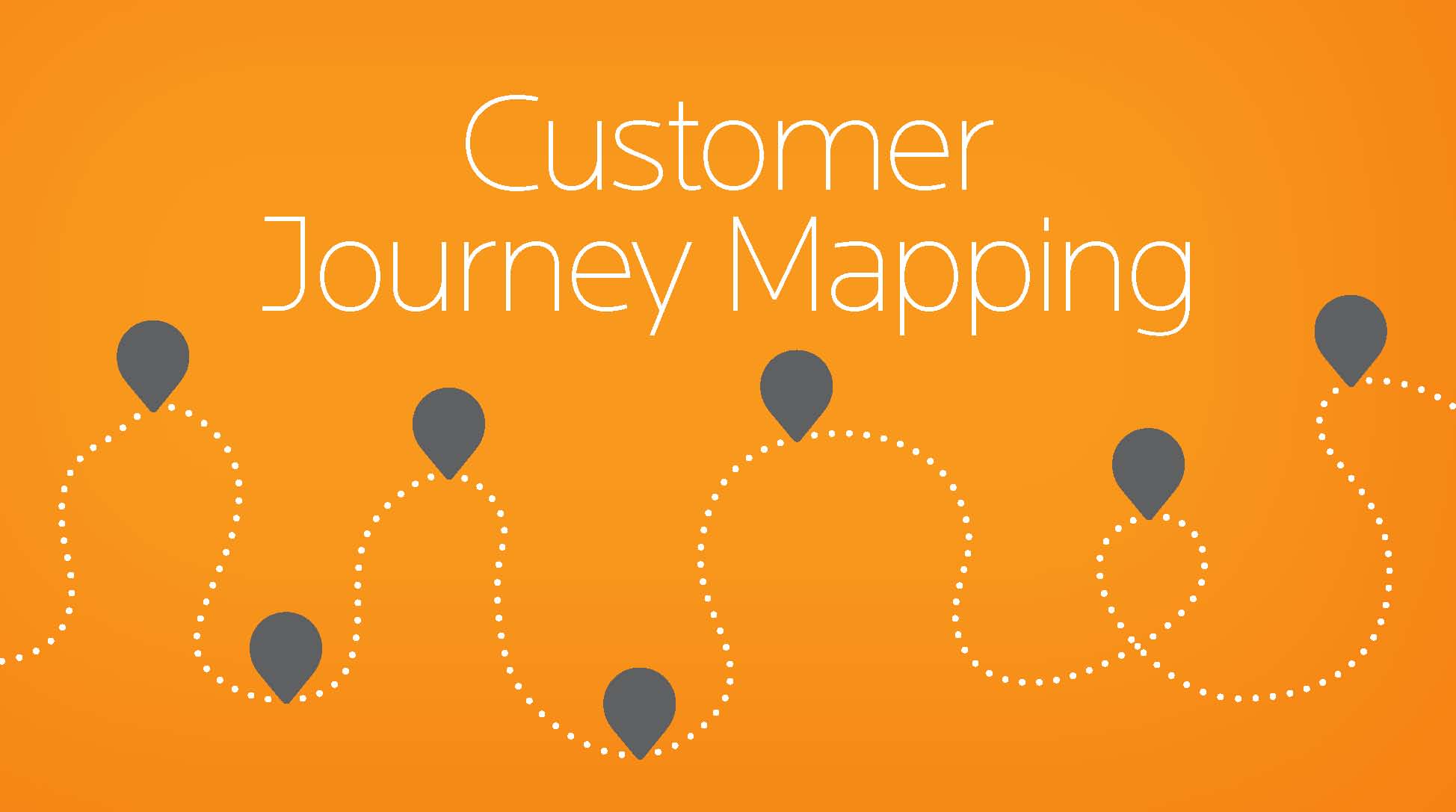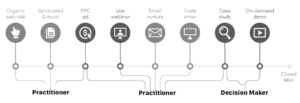
Customer Journey Analytics Frameworks
A few weeks ago, I was on a project status review call with a marketing leader who runs demand generation for one of our customers, a SaaS company. During the call he said that he was asked an interesting question by the sales leader at the company and he wanted to discuss how to go about answering that question. Been working with the company for over a year, I know the sales leader personally who is one of those few leaders who truly understand nuances of sales/marketing data and leverage analytics to drive performance on a daily basis. Knowing this sales leader well, I had a feeling that something interesting was coming up and boy was I right!
He told me that the sales leader had asked him a very interesting question –
“For all the deals that they had closed in that quarter, how and at which points in the deal cycle did marketing influence them”?
If you are in marketing, I am sure many of you have been asked such questions by the sales leaders you have been working with. Some of you might have the capabilities in place to answer such questions to some extent but hold your thoughts as it is about to get interesting.
For this customer, we had just built a new “Pipeline Influence” dashboard as part of the marketing BI infrastructure that we had been building. We had also added the metrics to track pipeline by “Marketing Sourced and Influenced” based on marketing engagements from the accounts before or after opportunity creation. We had implemented attribution methodology as well to enable us to track marketing’s influence on the pipeline.
We were in pretty good shape as far as the marketing analytics roadmap for this customer was concerned and I did not take a moment to brag about the fact that we already have all the details to answer such questions from the sales leader. To this, the marketing leader said that just tracking at a high level how many opportunities and pipeline were influenced by marketing tactics/channels was not enough and that the sales leader wanted to understand
“How and when during each deal, marketing enabled the AEs to move the deals through the funnel towards closing”?
When I heard these words, I asked the marketing leader to repeat them for me because they sounded super melodious and immediately had my analytics juices flowing. I realized that this discussion between the 2 leaders was not just about who is taking the credit for a deal but it involved going above and beyond to truly understand how best to leverage marketing when it comes to closing deals, especially the strategic ones.
To answer these questions, we needed the ability to do “Deal Dissection” in pursuit of understanding how sales and marketing teams were partnering during the deal cycles. To this day, I think this is the true description of “sales and marketing alignment”, the term that has been abused beyond words.

After having a few follow-up discussions with the customer and reviewing the capabilities we had in place, I drafted what the ultimate solution would like that would enable sales and marketing leaders to track these details. The result is our “Customer Journey” framework and I am super excited to share about this with everyone. This is the best part of being at marqeu and having the opportunity to partner with some of the smartest data-driven marketers. Every day our customers are asking such thought-provoking questions that push the boundaries of our knowledge so as to deliver on our commitments. It is this never-ending quest that helps us continuously add value for our customers by leveraging data and analytics.
In our customer journey framework, we enabled sales and marketing teams to do sorts of “MRI of each deal” on the fly.
- We have the ability to look at 1 deal or combination of deals right from the very first marketing touch across each persona to the last touch for the deal closure.
- We also provide the visibility to look at general trends (clusters) of marketing tactics that work for each sales segment, the industry of customers, for new business vs cross/up-sell etc. along with the insights into what decision makers vs practitioners engage with and in what phase of the deal cycle. All these insights are like gold mine when it comes to leveraging data for personalized and contextual experience for customers. It also drives efficiency in marketing execution and a higher ROI as marketing has the key insights to fine tune the programs down to each account, industry, product line or geography.
- The insights from the customer journey framework and the associated dashboards are not only relevant from the sales perspective but they drive building the marketing playbooks especially for ABM programs.
With the right marketing analytics strategy, organizations can empower the teams with these critical insights so that they each team member is able to make data-driven decisions around marketing optimization and actively contribute towards driving the data-driven culture within the organization.
The best part of the customer journey framework project is not the dashboard that was delivered to enable teams to access such deep-rooted intelligence on the fly but the approach with which we went about delivering on it. We started with the key (and extremely relevant) business questions that this sales leader asked. We then reviewed what we could answer with the capabilities we had put in place based on earlier asks, had follow-up discussions to understand further what was being asked for, how it would be used and then we went about building the solution with the set of tools we already had in the organization. Most of the modern marketing teams use some kind of analytics tools and we have seen that conversations always revolve around what fancy tools each company has in their so-called tech stacks, new tools that they can get but the conversation most of the times is not about what business questions are being asked, the solution approaches that are relevant to those questions and the organization. We think these kinds of conversations set apart the high performing organizations.
We are always on the lookout for inputs and examples from the marketing and sales communities to keep adding value for our customers. We would welcome the inputs from other leaders and practitioners around what kind of questions are being asked by sales and marketing teams at your organizations and how you go about answering them.
Subcribe to B2B Marketing Analytics Blog
Recent Posts
- Dynamic Web Scraping with Python, Pandas and DuckDB 05th Mar 2024
- Modern Lead Scoring – The Data Driven Approach 12th Apr 2023
- PLG and Customer Activation – New Paradigm in Marketing Analytics 03th Oct 2022
Recent Comments
- Sales Follow-up and Tracking of the MQLs | marqeu on Conversation Ready Leads
- Sales Follow-up and Tracking of the MQLs | marqeu on Demand Waterfall Conversion Rates – The Framework
- 5 Metrics That Matter The Most In Marketing Analytics | marqeu on ABM – Marketing Analytics Led Demand Generation Engine
- The Revenue CMO - Leading the Data Driven Marketing | marqeu on Growth Marketing – Key Priority for CMOs
- Best of B2B Marketing Zone for October 12, 2020 on Multi-Dimensional Segmentation Engine – Beyond the Smart Lists
Archives
 B2B Marketing Analytics and Marketing Automation
B2B Marketing Analytics and Marketing Automation
- Dynamic Web Scraping with Python, Pandas and DuckDB March 5, 2024The post Dynamic Web Scraping with Python, Pandas and DuckDB appeared first on marqeu.
- Modern Lead Scoring – The Data Driven Approach April 12, 2023The post Modern Lead Scoring – The Data Driven Approach appeared first on marqeu.
- PLG and Customer Activation – New Paradigm in Marketing Analytics October 3, 2022PLG and customer activation powered by advanced marketing analytics capabilities are among the top priorities for all business and growth marketing leaders across B2B SaaS organizations. The primary focus of the marketing analytics work that we have been doing with some of the most forward-looking B2B marketing analytics leaders across SaaS organizations is being augmented[...] […]
- Marketing Attribution – Beginning of a Data Journey April 3, 2022The ability of a marketing organization to track marketing attribution is often considered an end in itself when it comes to advanced marketing analytics. Every marketing leader takes immense pride in talking about the marketing analytics teams at their organizations when they have implemented attribution tools/frameworks and can provide attribution data either via salesforce.com or[...] […]
- Marketing Scorecard – A CMO’s Trusted Advisor October 19, 2021Marketing scorecard powered by a comprehensive marketing analytics frameworks has emerged to be the most trusted advisor of a B2B CMO these days. A well designed and intuitive marketing analytics scorecard provides the much needed at-a-glance view of the health of the marketing organization across 2 broad areas: How well the team is pacing towards[...] […]
- Marketing Analytics and Lead Nurturing – A Strategic Combination August 31, 2021Marketing Analytics and Lead Nurturing is a strategic combination across all revenue marketing organizations. A well-thought-out lead nurture strategy backed by data-driven insights through marketing analytics frameworks is a game-changer. While others see nurturing as a series of emails, we see nurturing differently. For us, nurturing is a data-driven, meticulously planned contextual, and hyper-personalized strategic[...] […]
- Sales Follow-up of the MQLs – Overlooked Part of Marketing Analytics December 14, 2020MQLs are an important part of the marketing analytics frameworks across most of the modern marketing teams but the sales follow-up of the MQLs is critical. Whether it is lead scoring, database management, or reporting around the performance of the MQLs, marketing teams spend a lot of time and energy at continuously optimizing the performance[...] […]
- The Revenue CMO – Leading the Data Driven Marketing November 29, 2020Among the most interesting trends shaping the modern marketing function is the rise of a new breed of the CMOs called the “Revenue CMO”. The role of the CMO has undergone a radical shift especially in B2B technology companies, which are driving the revolution of this new breed of the CMOs. Revenue CMOs are growth[...] […]
- Multi-Dimensional Segmentation Engine – Beyond the Smart Lists October 12, 2020Marketing Analytics is a term that has become synonymous with the success of all modern marketing organizations and database segmentation engine is the key part of marketing analytics. The core competency that differentiates the winning organizations is their ability to objectively evaluate the investments that drive the highest engagement and pipeline growth. Whenever the term[...] […]
- Top 2 Marketing Analytics Priorities for B2B Marketing Teams August 3, 2020As though the ever-increasing expectations of the c-suite from marketing teams to demonstrate the quantifiable impact were not enough and now we are in these unprecedented times, which have further highlighted the need for marketing to be more data-driven and efficient with their investments. Scrutiny around marketing budgets and the asks for returns from the[...] […]


Comment (1)
Conversation Ready Leads | marqeu
05 Jun 2019 - 11:44 PM[…] the past few months, I have done numerous successful implementations of our customer journey frameworks across many different customers. We are enabling sales and marketing teams to do sorts of “MRI of […]